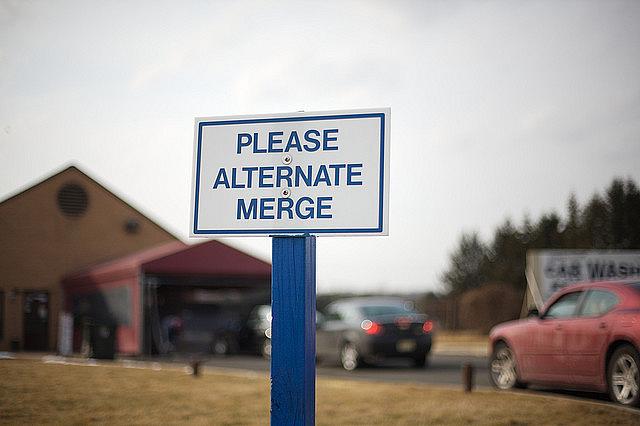Expert Q&A: Understanding the insurance industry’s latest bout of 'merger mania'

From hospital systems to pharmacies, this summer’s health headlines have been filled with tales of consolidation plans. And no where has the recent “merger mania” been more evident than the insurance sector.
Earlier this month, Medicaid insurer Centene Corp. agreed to acquire Los Angeles-based Health Net Inc. for $6.8 billion. Insurance giant Anthem has made offers for Cigna in recent weeks. (Update: Shortly after this post was published, Anthem announced a deal to buy Cigna for $54 billion.) Aetna is preparing to buy Humana. And there’s speculation UnitedHealthcare will be getting into the game, too.
“Every one of the big five — Aetna, Anthem, Cigna, Humana and UnitedHealthcare — are either in play, rumored to be in play or have gone public with their intentions,” Wendell Potter wrote in Newsweek.
Insurers are seizing on billions of dollars in government spending spurred by the Affordable Care Act, according to Chad Terhune of The Los Angeles Times. And the recent Supreme Court decision upholding the health law’s insurance subsidies is keeping “the spigot turned on.”
Experts are debating the implications of these mergers for consumers, with some predicting the insured will face higher premiums and fewer options. This Wall Street Journal analysis examined markets that will be affected by some of these potential mergers, and the dampening effect of less competition there. Regional newspapers are also busy analyzing potential cost implications in their individual markets.
To help us understand the rapidly evolving landscape, Center for Health Journalism Digital caught up with national health care expert Paul B. Ginsburg, the Norman Topping Chair in Medicine and Public Policy at the University of Southern California, and the director of public policy for USC’s Schaeffer Center. We asked Ginsburg, also a panelist on a recent ROH webinar on hospital consolidation, to discuss the implications of the insurance industry’s recent merger frenzy. His responses below have been edited for length and clarity.
Q: Why are we seeing more mergers in the insurance industry? Did the recent Supreme Court ruling in King v. Burwell play a role?
Paul B. Ginsburg
Q: What specific provisions of the ACA have encouraged these industry changes?
A: Individually purchased health insurance, which has expanded through ACA regulations and subsidies, is the part of the insurance landscape that’s been the most profoundly affected by the ACA. Certainly, to a degree, Medicaid managed care is relevant because of the large numbers of additional people. The ACA’s effect on large employment-based health insurance is fairly limited, especially for large employers.
Q: What are the primary concerns with insurance industry consolidation?
A: The main negative is the concern about higher prices for people who buy insurance. Economic theory doesn’t tell you if premiums will be higher or lower. There’s a possibility they could be lower because insurers would have additional clout with providers. But additional consolidation in markets for purchasing insurance could push prices up. (Ginsburg points to the work of Leemore Dafny, who researches health care consolidation. Here’s an interesting piece published last year on hospital consolidation in the New England Journal of Medicine and here’s a 2014 presentation by Dafny with excellent charts on consolidation and the effects on prices.)
Q: What about the advantages of insurance industry consolidation?
A: In the same way that provider consolidation leads to higher prices, insurer consolidation tends to bring provider prices down because insurers gain more leverage in negotiating with hospitals and provider groups. There’s also the possibility that larger insurers are more advanced and have more potential to bring the latest technology to bear on managing health care. If we’re talking about Accountable Care Organizations and other approaches to payment reform, a small insurer is unlikely to be able to do much in those areas because there’s no capital to develop tools and providers are less likely to be interested in working with them because such insurers have a relatively small percentage of patients.
Q: What do you think will happen with the anticipated insurance industry mergers?
A: I don’t think any of these mergers will be approved without changes. In many of the Medicare Advantage markets, combining shares won’t make those markets appreciably more consolidated. But, in some, the shares of the two combined will be very high. Even if the Department of Justice approves these mergers, it will likely be under conditions such as divesting of assets. One of the companies will have to give up its plans in markets seen as having excessive consolidation. We should assume divestitures before approval. That would be considered to be a positive response by antitrust authorities. The negative response, from the perspective of the insurance companies involved, would be to have the mergers completely rejected. Unlike the rest of health care, this is an area where a large part of the policy has been made by courts rather than in Congress.
[Photo by Alan Turkus via Flickr.]

